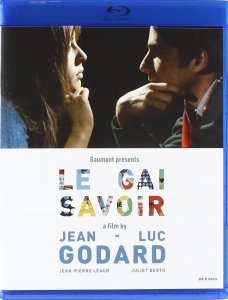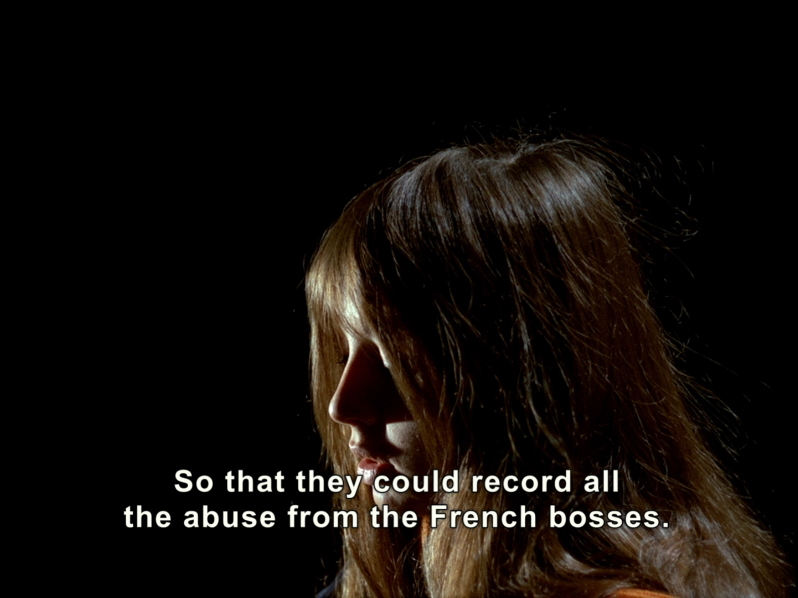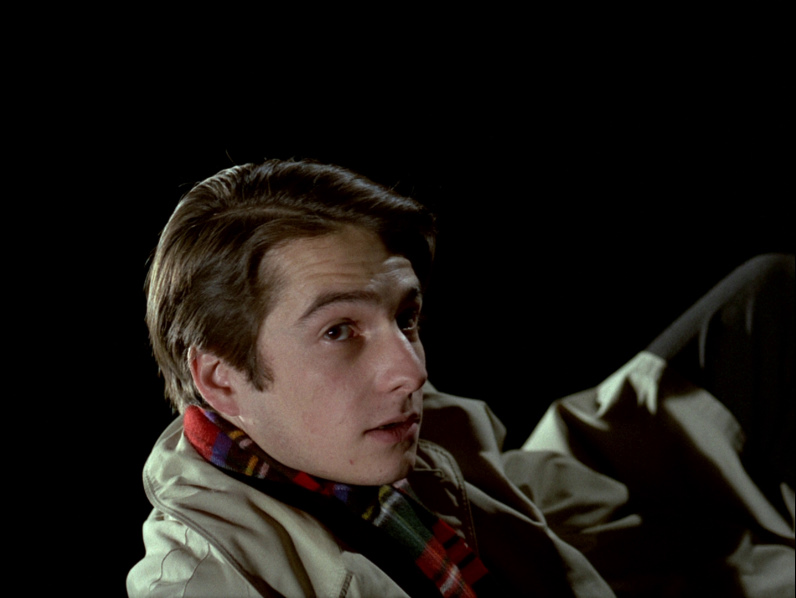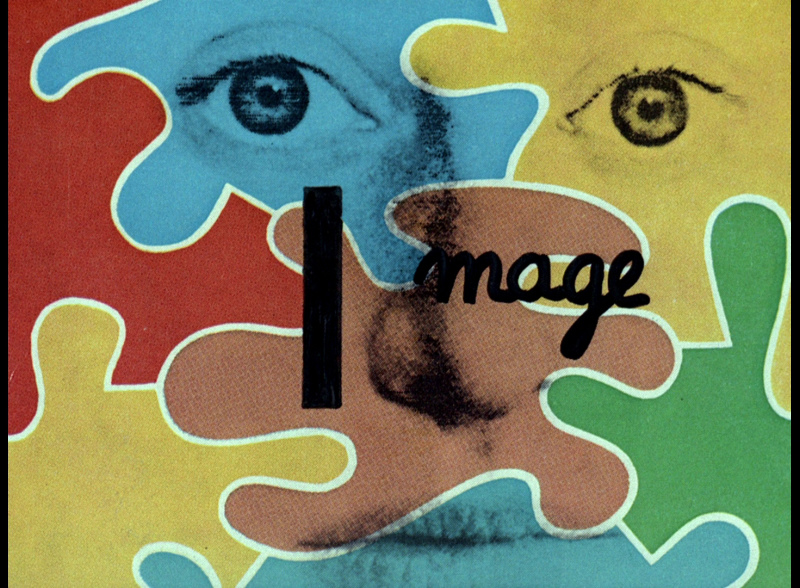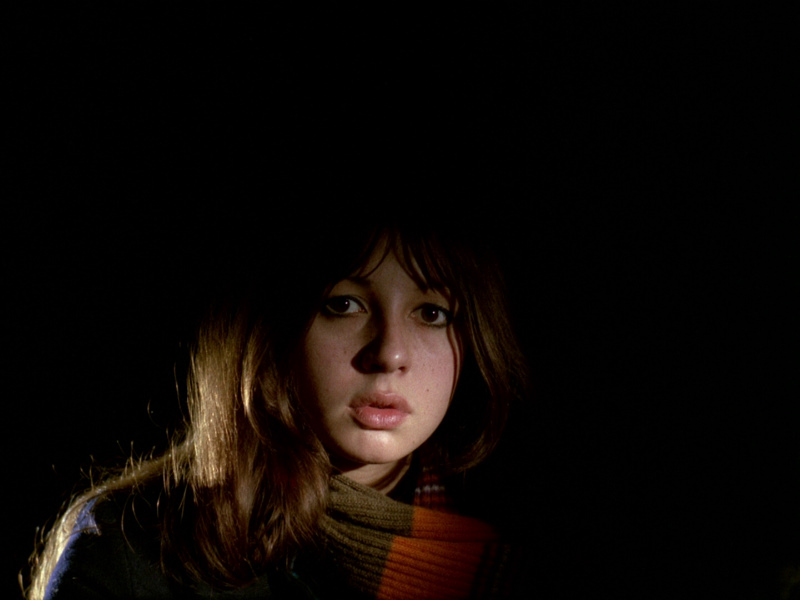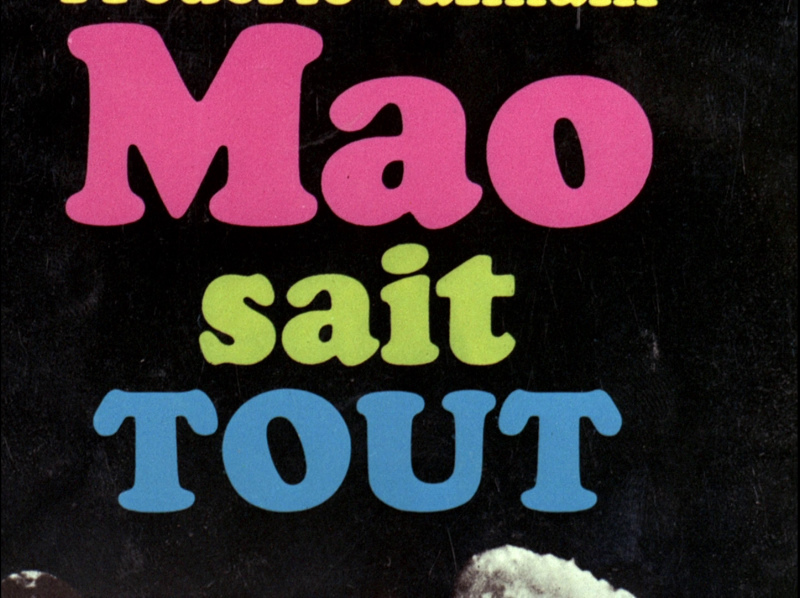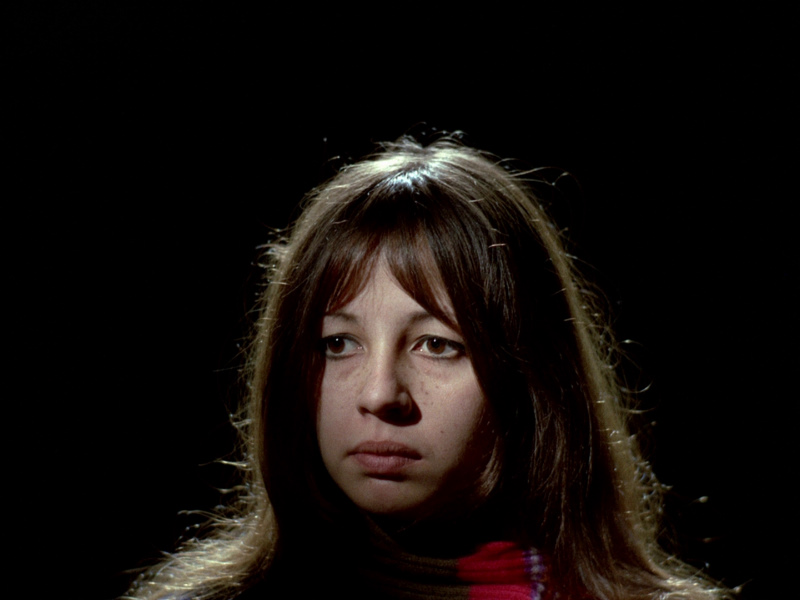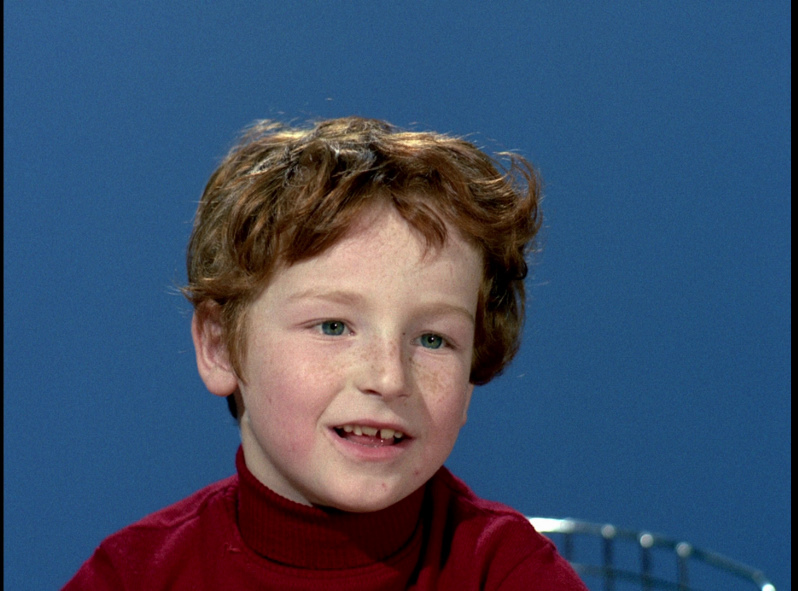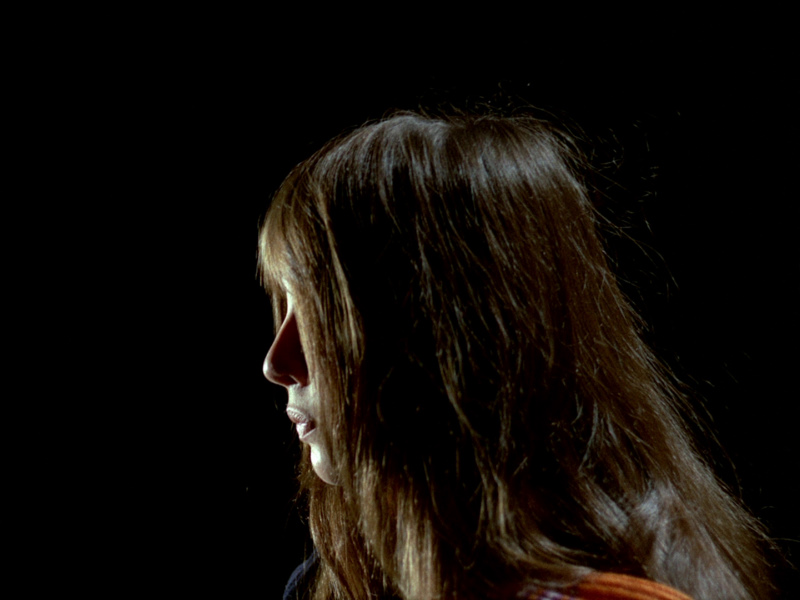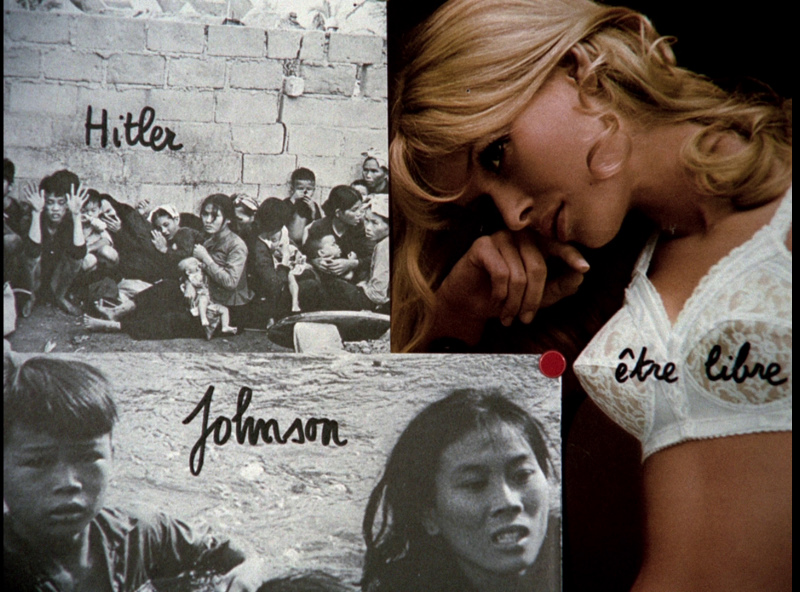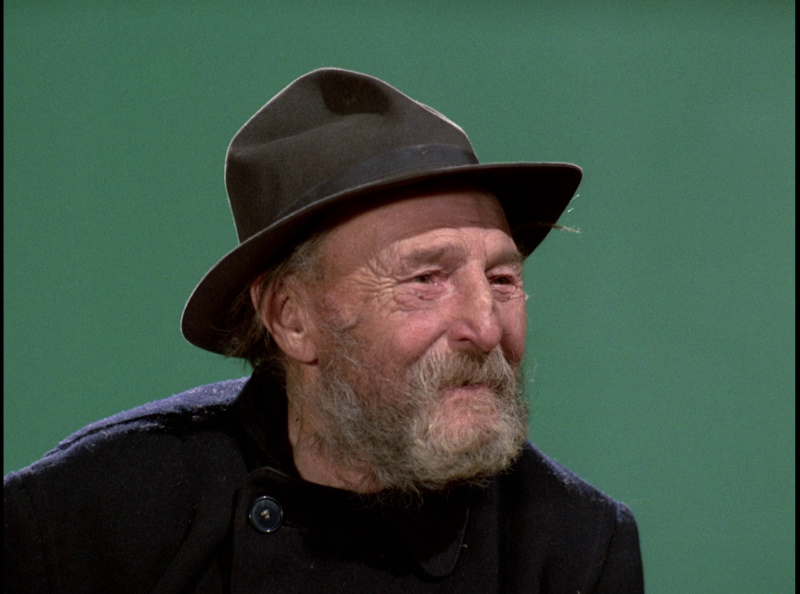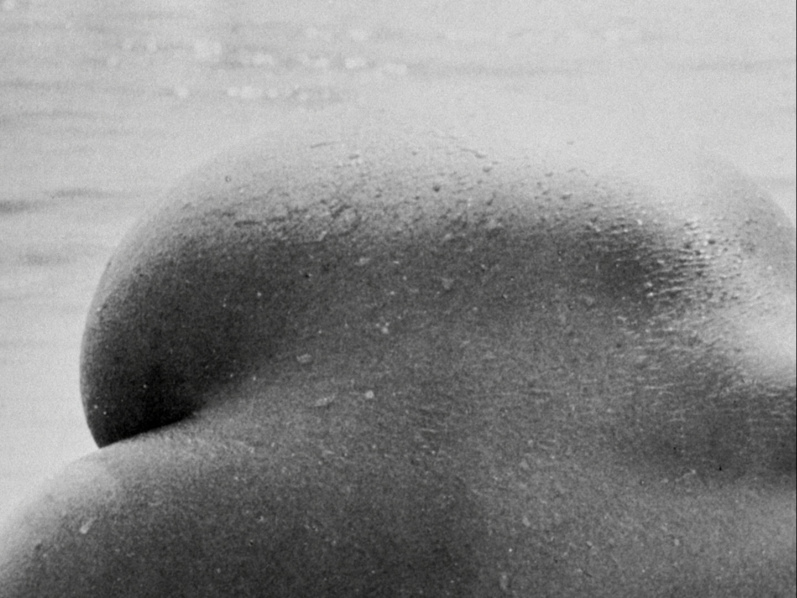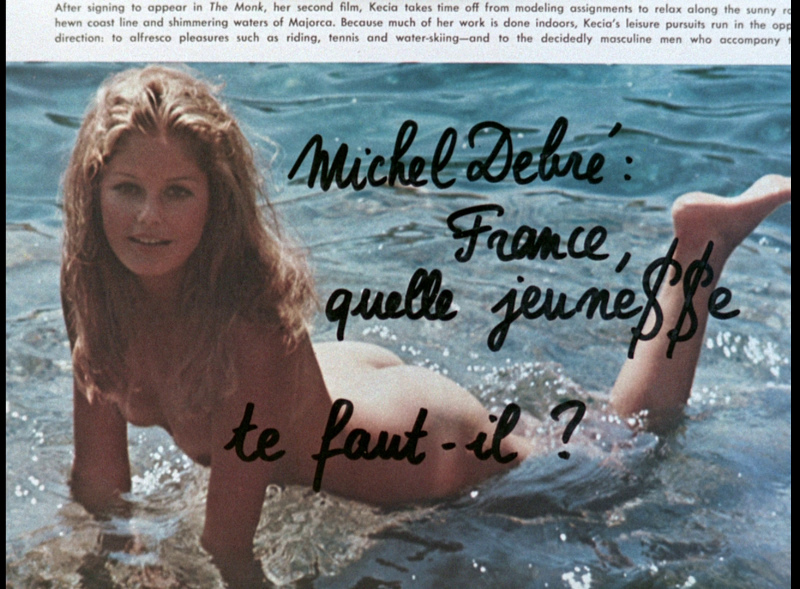![]()
![]()

![]()
![]()
|
Search DVDBeaver |
S E A R C H D V D B e a v e r |
|
|
Le Gai Savoir aka "Joy of Learning" [Blu-ray]
|
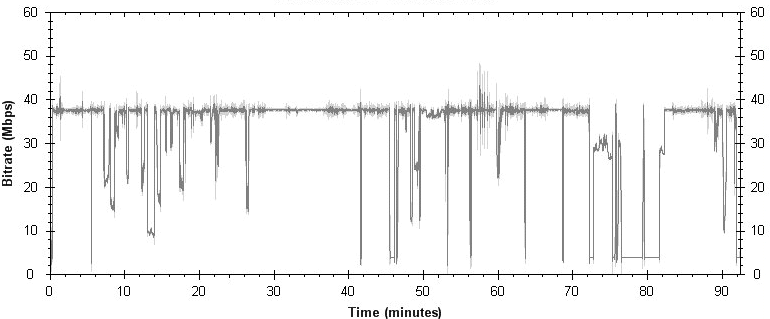 |
Description:
While alone in an abandoned television studio, two militants, Émile Rousseau (Jean-Pierre Léaud) and Patricia Lumumba (Juliet Berto), have a discourse on language. Referring to spoken word as "the enemy" - the weapon used by the establishment to confuse liberation movements - the two deconstruct the meanings of sounds and images in an attempt to "return to zero" and truly experience the joy of learning.
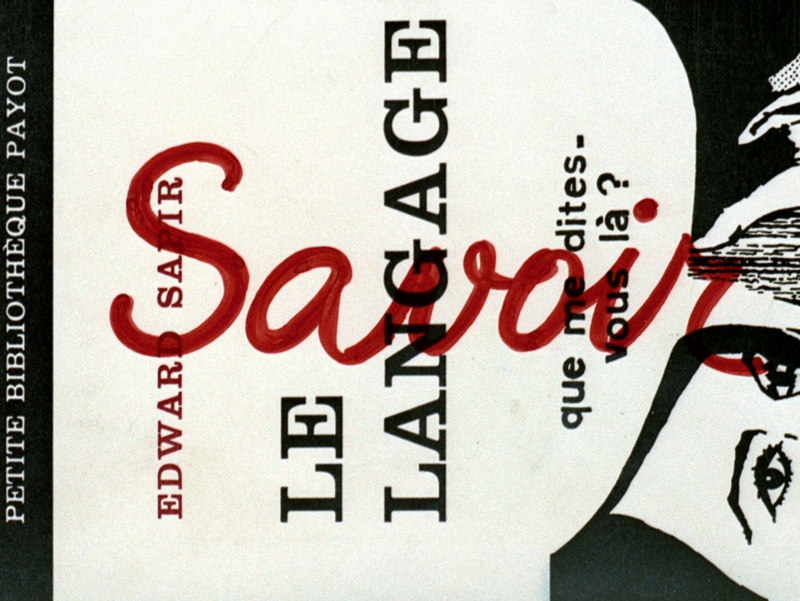 |
The Film:
This experimental minimalist drama by Jean-Luc Godard is a totally plotless exploration of film language. The setting is a darkened soundstage with only a single light to illuminate two actors who discuss philosophy. The philosophy reflects the director's most radical thoughts about making films. When not discussing films, the two play word-association games. Though named Le Gai Savoir, this film is not based on the book of the same title by Friedrich Nietzsche but, very loosely, on Jean Jacques Rousseau's Emile.
Commissioned (in a moment of exceptional naiveté) by French TV, Le Gai Savoir was Godard's first 'radical' break with established methods of exhibition and distribution; the film was never televised, and has been seen only by political groups and film societies. Two militants meet in a darkened film studio to educate themselves in the ideological meanings of specific sounds and images: their work is essentially 'de-constructive', and it represents an important step in Godard's own return to a 'degree zero' of cinema. In Godard's own terms, the film is not at all revolutionary: it's a confused, idiosyncratic attempt at an analysis of the way things are, not yet a committed attempt to construct the way they should be.
Excerpt from TimeOut located HERE
Image : NOTE: The below Blu-ray captures were taken directly from the Blu-ray disc.
The dual-layered Kino Lorber Blu-ray of Le Gai Savoir looks strong in 1080P. The film's visuals are basic... and, mostly, shot in a dark space although there are colorful interjections of signs and graphics. The presentation starts with the Gaumont logo and it compliments the La Chinoise Blu-ray image quality release, also, from Kino. This Blu-ray gave me an error-free HD presentation, supporting grain well, and looking very pleasing throughout.
CLICK EACH BLU-RAY CAPTURE TO SEE ALL IMAGES IN FULL 1920X1080 RESOLUTION
Audio :
Kino Lorber use a DTS-HD Master 2.0 channel track at 1832 kbps (24-bit) in the original French language. There are effect noises in the film - although some will fondly remember the use of Mozart's Piano Sonata No. 8 in A minor, K. 310 (1. Allegro maestoso). The dialogue was relatively clear and easy to distinguish. There are optional English subtitles offered and my Oppo has identified it as being a region 'A'-locked.
Extras :
This particular Godard film make a audio commentary... essential. Le Gai Savoir is more than interpretational - it can speak volumes and the Adrian Martin commentary is so important to appreciating the film's language, themes and referential meanings. Martin is one of the best and the, insightful, commentary adds immense value to the Blu-ray. There is also a 7.5-minute piece - Promenade dans Le Gai Savoir - a video by Fabrice Aragno - the cinematographer for both Goodbye to Language and Film Socialisme plus a few Godard trailers.
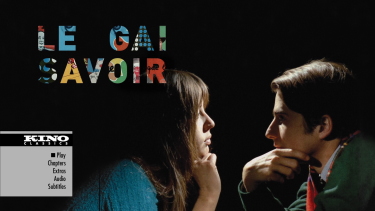 |
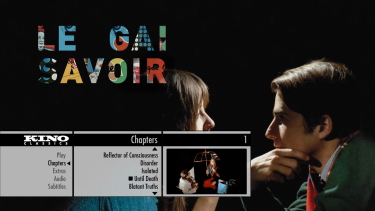 |
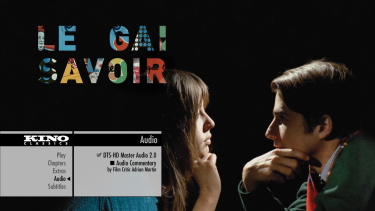 |
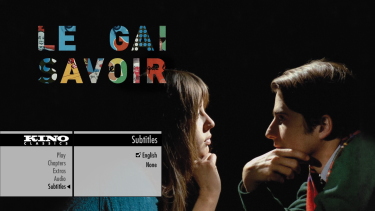 |
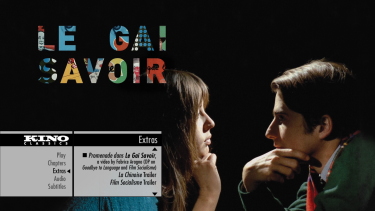 |
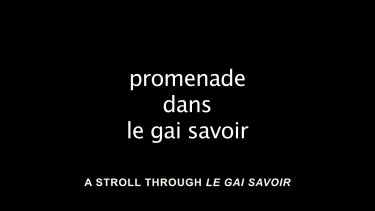 |
BOTTOM LINE:
Le Gai Savoir deals with an incredibly important concept -
how we learn. The title is a reference to Nietzsche's book "The
Gay Science". The film put Godard on the map as a force
to be reckoned with. that fact that it was banned by the
French government speaks volumes to the expression of free
thought. I don't judge it as anarchy as much as
opening one's mind to possibilities - political, social and
intellectual. The Kino Lorber
NOTE: At the writing of this review it is 37% OFF at Amazon.
Gary Tooze
October 7th, 2017
![]()
![]()

![]()
![]()


